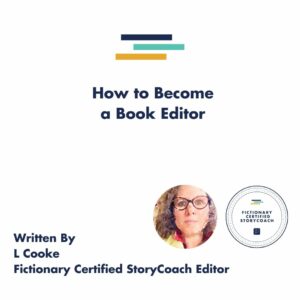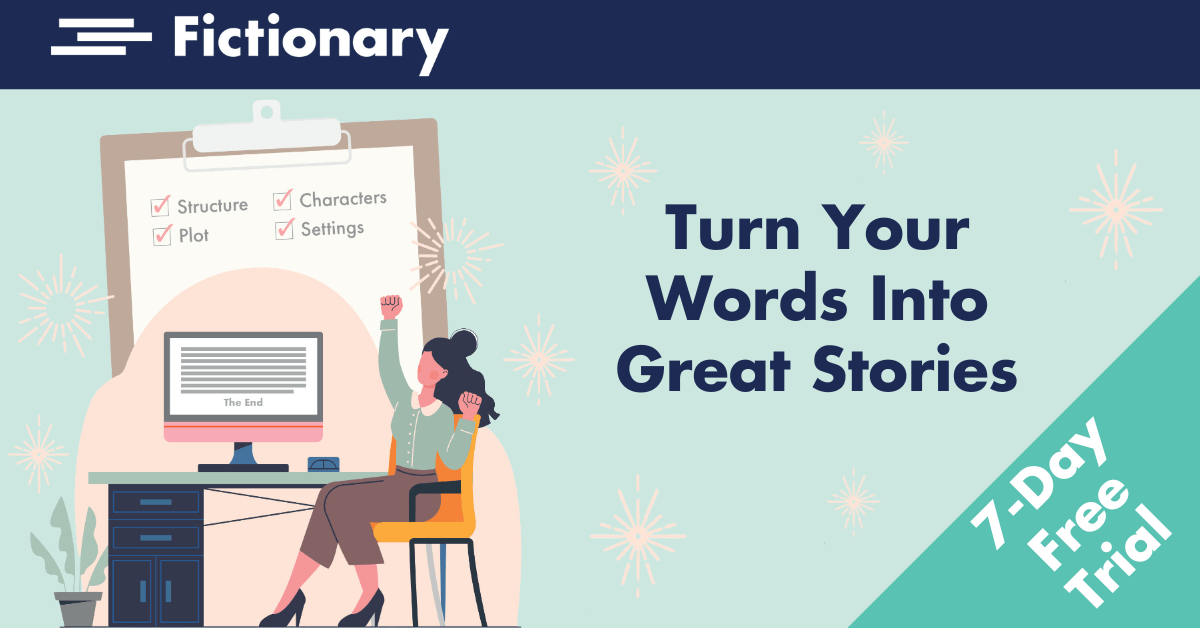This is how to become a book editor…
When you asked the search engine “how to become a Book Editor”, you landed here on the Fictionary blog. Here you will find answers to the if, the which and the how you should become a Book Editor.
Do you have What-It-Takes to become a Book Editor? Because W-I-T is key to a Book Editor.
Merriam-Webster Dictionary’s first definition of wit is the ability to say or write things that are clever and usually funny. The second definition is that people with wit are known for their smarts. The third definition is the ability to think or reason.
Do you have a Book Editor’s W-I-T?
☑ Tact – You need buckets of tact. Because you must help the Author see where to cut, where to enhance and where to leave alone, and have the author listen. Your Author should become a repeat customer, that’s your aim.
☑ Objectivity – You need to understand why you react to the story. And give actionable advice that helps the Author rewrite their story into the best possible shape.
☑ Memory – Your job is also to catch all the spots in the manuscript that have inconsistencies, encouraging the Author to note and change them.
☑ Insight – You need insight into the story. A strong Book Editor gives specific actionable advice. The Author can then action your advice with their own written voice.
☑ Standards – You need to keep the advice consistent. The vice in poor advice is a lack of consistency. An Author must trust your book editing advice.
☑ Well Read – Do you fill your home not only with fiction, biographical, and factual books—those are a given—but also, is your home full of writing craft books? Are your bookshelves bulging? Do you have a writing craft book wish list that needs funding? Being a Book Editor is the next natural step.
All that’s a Book Editor’s job.
Okay, you have the What-It-Takes to become a Book Editor.
Now you need to figure something else out:
Before answering the how-to-become-a-Book-Editor, first ask the what-type-of-Book-Editor should you be?
There are three main types of Book Editors:
1. Story Editor
2. Copy Editor
3. Proofreading Editor
This Fictionary blog article has an in-depth discussion of the three main Book Editor jobs.
And here is a short Fictionary video about the difference between the three different types of editing.
Building a book is a lot like building a house. The Author is the Architect. Each Book Editor must use the Author’s vision as their blueprints.
- The Story Editor is the structural engineer, who charts the story by making sure it is structurally sound.
- The Copy Editor is the specialist building contractor, who is an expert on the details of plumbing and wiring of the lines.
- The Proofreading Editor is the building inspector who signals the work is complete and ready.
A Story Editor must test the structure of the story, so that it stands up to any and every reader. The Copy Editor looks at the minutiae of sentences. Are they all connected well? And the Proofreading Editor ensures the formatting is spot on.
Each type of Book Editor has a different pay bracket. A Story Editor earns more than a Copy Editor, and a Copy Editor earns more than a Proofreading Editor. This article by the Kindlepreneur shows the earning potential breakdowns.
What training do you need to become each type of Book Editor?
Story Editor
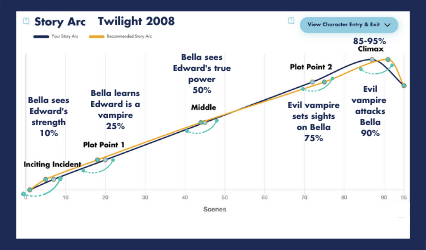 Do you love analysing stories? Can you reorganise the work-in-progress, so the story works better? Does the story arc fill you with joy? Do you read each scene looking at its shape? Then maybe being a Story Editor is for you. It is, on average, the best paid Book Editor job.
Do you love analysing stories? Can you reorganise the work-in-progress, so the story works better? Does the story arc fill you with joy? Do you read each scene looking at its shape? Then maybe being a Story Editor is for you. It is, on average, the best paid Book Editor job.
In the past, you would have needed an English or Journalism degree and moved to be near a big publishing house. And spent years being a junior, learning the trade through practice. The model has worked well for a long time.
But if you cannot move to New York, or London, or have qualifications that are not an English or Journalism degree, is there any online training course out there?
Yes! Fictionary has a Story Editor’s training course.
When you pass, you become a Fictionary accredited StoryCoach Editor. This Fictionary blog article has more about the finer details. It is a super way to jump into being a stellar Story Editor and having the freedom to work from home.
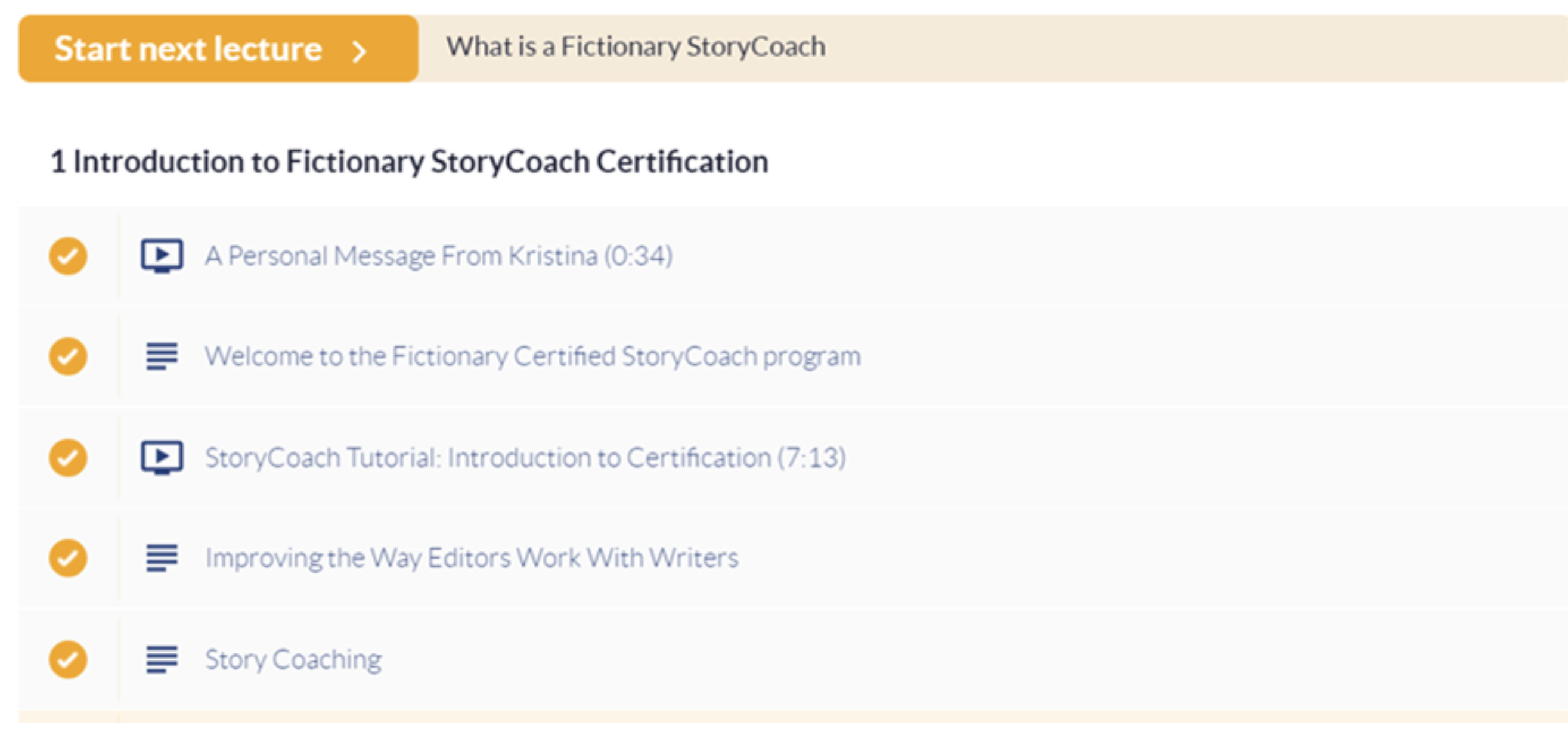
Copy Editor
Are you a grammar geek? Are you someone who loves a bit of well-written rhetoric? Consistency is consistency is consistency. Do you know a style guide and can ensure the Author follows it? Could you focus, line by line, on an 80,000-word novel? See ways of improving the sentence structure without losing the Author’s voice?
Then copy editing might be your specialty. There is the traditional way to become a Copy Editor. Apprenticeship works.
With the internet, however, there are many online courses. Online training works too.
Try to pick a training course that has a good name. Research and find out if you can get references for whichever course you choose.
This Simon Fraser University page is full of reasons to be a Copy Editor, and there is a course there too. It depends on the country you live in, but if you are UK based, then the College of Media and Publishing has accredited courses.
Proofreader
Does the double space after a full stop—and before the next sentence starts—give you nightmares? Do you look at a page of paragraphs and wonder why the indentations are not identical? Is the placement of white space on a page something you notice? Is Ctrl “F” your favourite function in Word? Then becoming a Proofreader might be for you.
There are also lots of online courses for proofreading.
Editors Canada has a wonderful website full of wise words. Editors Canada is a great resource for proofreading and about any type of editing. The Chartered Institute of Editors has a plethora of proof-reading courses.
Is becoming a Book Editor still for you?
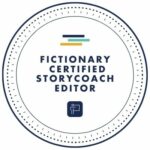 Remember, you need to have W-I-T to be a Book Editor. Then use your W-I-T to choose what type of Book Editor you want to become. From there, you need to figure out the best training for you. Which will be the Fictionary StoryCoach Editor Training course, of course?
Remember, you need to have W-I-T to be a Book Editor. Then use your W-I-T to choose what type of Book Editor you want to become. From there, you need to figure out the best training for you. Which will be the Fictionary StoryCoach Editor Training course, of course?
That’s how to become a Book Editor—the wittiest job around.
And again, the link to the Fictionary StoryCoach Editor course is here.
Post Written by L Cooke
 As a Fictionary certified Editor, I will explore your Work-In-Progress, chapter-by-chapter, scene-by-scene, story-element-by-story-element. You will end up with a treasure map of sorts, full of actionable advice and a greater understanding of your Work-In-Progress.
As a Fictionary certified Editor, I will explore your Work-In-Progress, chapter-by-chapter, scene-by-scene, story-element-by-story-element. You will end up with a treasure map of sorts, full of actionable advice and a greater understanding of your Work-In-Progress.
Contact at: https://invermuse.co.uk/


